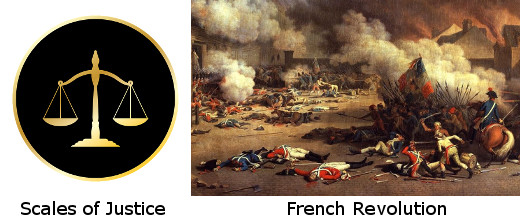Ils doivent envisager qu’une grande responsabilité est la suite inséparable d’un grand pouvoir.
Having completed the draft of my Major Paper for this semester, I am now in the position to revise and most importantly address which areas of paper require work. The focus of my revision will be to ensure my paper effectively addresses the complex ethical themes of the two primary sources, while ensuring my own analysis acts as the overarching argument. The argument I hope to communicate is that power, when used incorrectly, may metamorphose into an intoxicant. It is the responsibility of those in “superior positions” to behave in ethical manners and uphold morality, otherwise they not only lose all justification to hold their position, but the system/equilibrium of society collapses. This responsibility is surely complicated with the recent developments we have made in technology and will only be challenged by ethical questions we can not ignore concerning these advances. In my paper I argue that a superior power exists in both Beggars in Spain and Nekropolis. While in Beggars in Spain, the Sleepless represent this superior power, it is household masters and those in command of the novel technologies who hold this superiority in Nekropolis. The relationship I am addressing certainly raises the question of who this higher authority could be, how that authority maintains it’s legitimacy in a national or international environment? Furthermore there is the issue that a minority population may in fact suffer as a result of these technological advances. These topics I discuss in my revised paper while aiming to make the claim that it is in fact the responsibility of the superior power, whoever this may be, in assuring the well function of their society. Furthermore, my next goal is to focus on integrating my primary and secondary sources in a more effective manner to ensure my secondary sources strengthen my original thesis.
